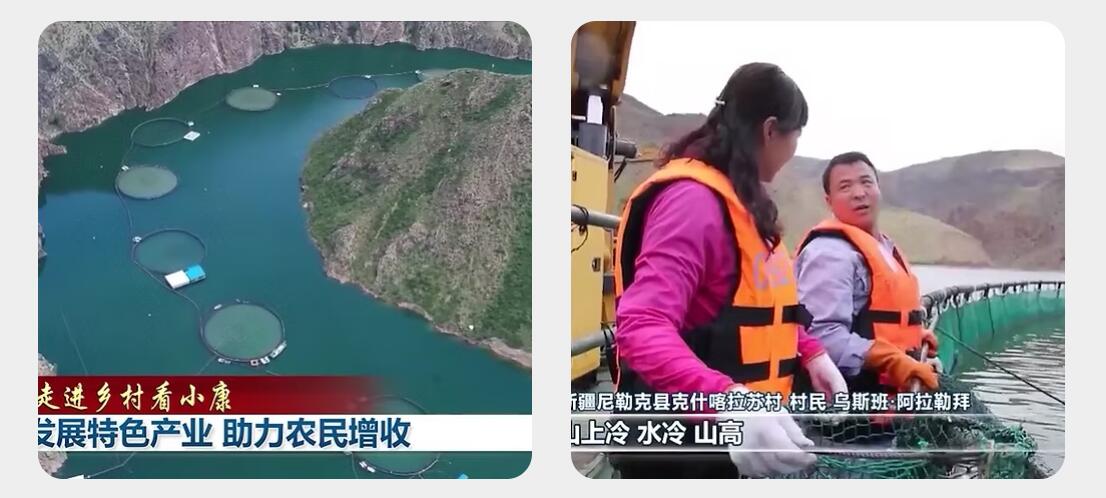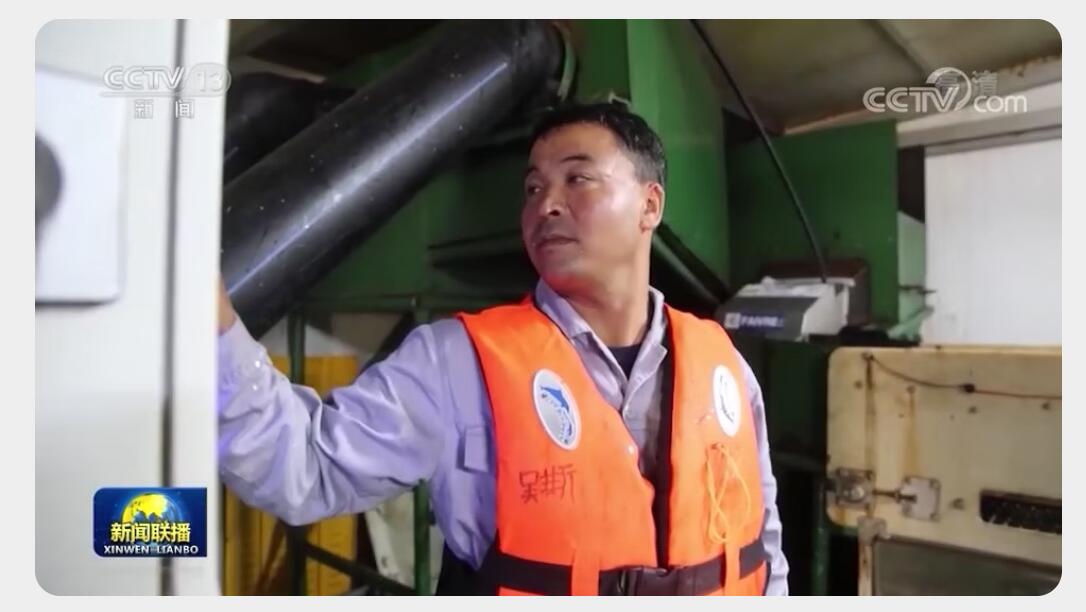
Based on local resources, develop characteristic industries. On July 25th, in "Entering the Countryside to See a Well-off Society", let's take a look together at how various regions have increased farmers' income through multiple channels by developing industries such as characteristic agriculture, rural tourism, and courtyard economy.
Deep in the Tianshan Mountains, in a canyon, there is a wide, clear and cool water surface. This is the salmon breeding base in Keshikalasu Village, Nalike County, Yili, Xinjiang.

Keshikarasu Village was once a well-known drought-stricken village in the area. The over 16,000 mu of farmland on the mountain was all mountainous dry fields that could not be irrigated. The wheat yield per mu was only a few dozen kilograms, which became the biggest bottleneck for local farmers and herdsmen to increase their income and get rid of poverty. In fact, there is no shortage of water in the local area. Right beside the village of Keshkalasu, there is the Kalasu River with a very wide water surface. This river gathers meltwater from the glaciers of the Tianshan Mountains, and its water quality is extremely pure. Due to the fact that there is at least a 100-meter drop between the river and the farmland and grassland, irrigation is very difficult, which has led the local farmers and herdsmen to live a poor life relying on water but lacking it. It was not until 2014 that the local government utilized the cold water resources to build the largest salmon farming base in Xinjiang here, which brought the water here to life. To enable more impoverished people to catch the "express train" of industrial development, the local government, enterprises and impoverished people have established cooperatives and started raising salmon.

Pulling in the net, lifting it, sorting it out and packing it into boxes, everyone's proficient movements were just like driving the flock of sheep back from grazing into the sheepfold.
Cold-water fish farming has become a "hot industry" that enriches the people. Nowadays, over 40 people in Keshkalasu Village are working at the breeding base. All the villagers have moved into new houses, and some former herdsmen have even opened fisherman's inns based on the salmon industry.
In building a moderately prosperous society in all respects, no ethnic group should be left behind. We will continue to promote the organic connection between poverty alleviation for all and rural revitalization, with a focus on enhancing the internal impetus and vitality for development, to ensure sustainable and sustainable development after poverty alleviation.